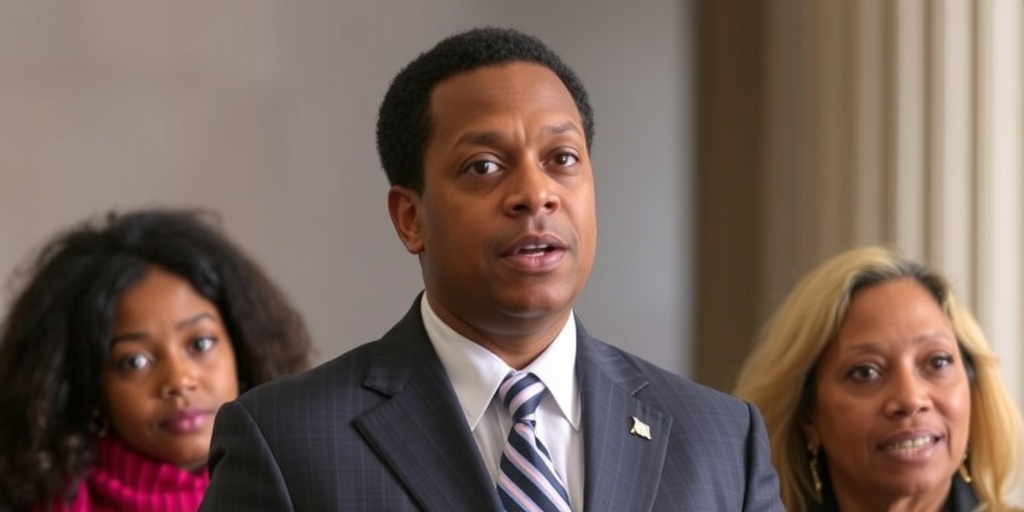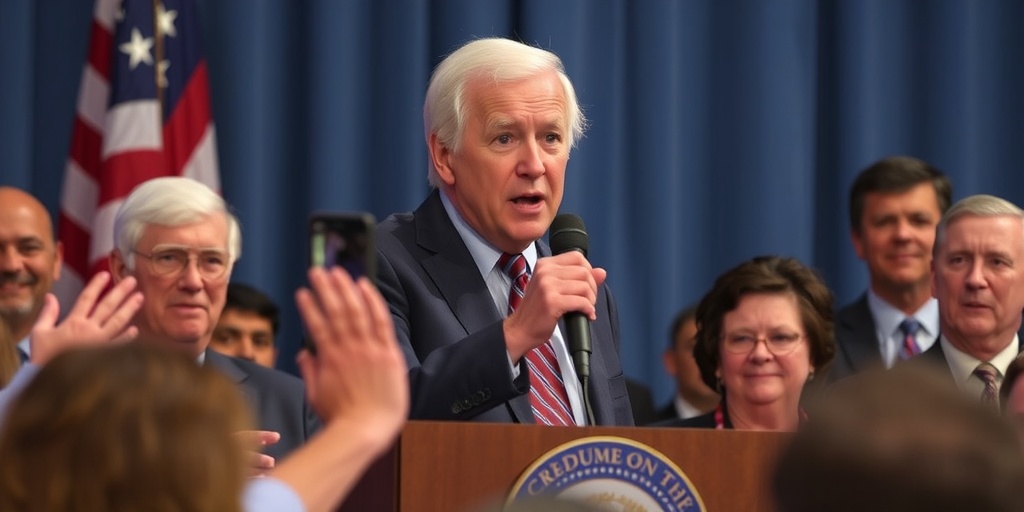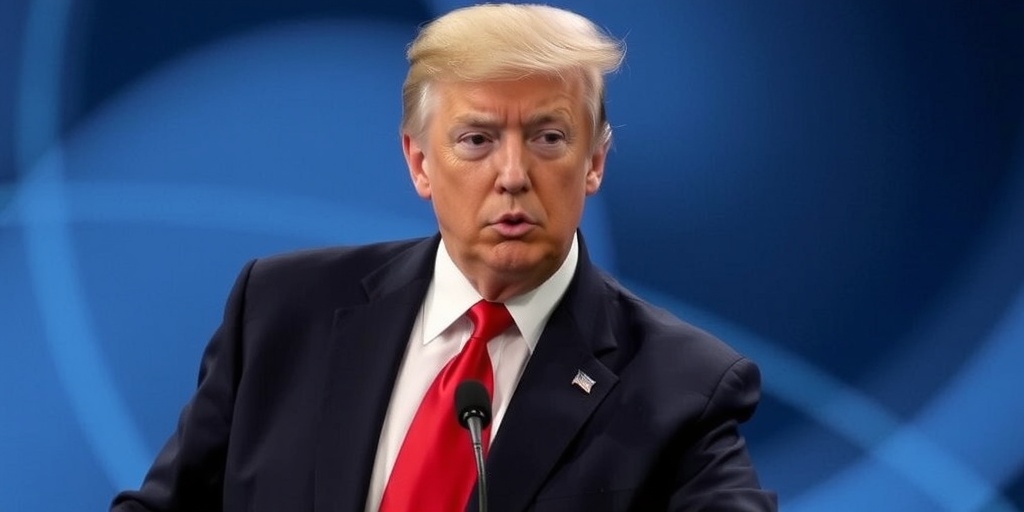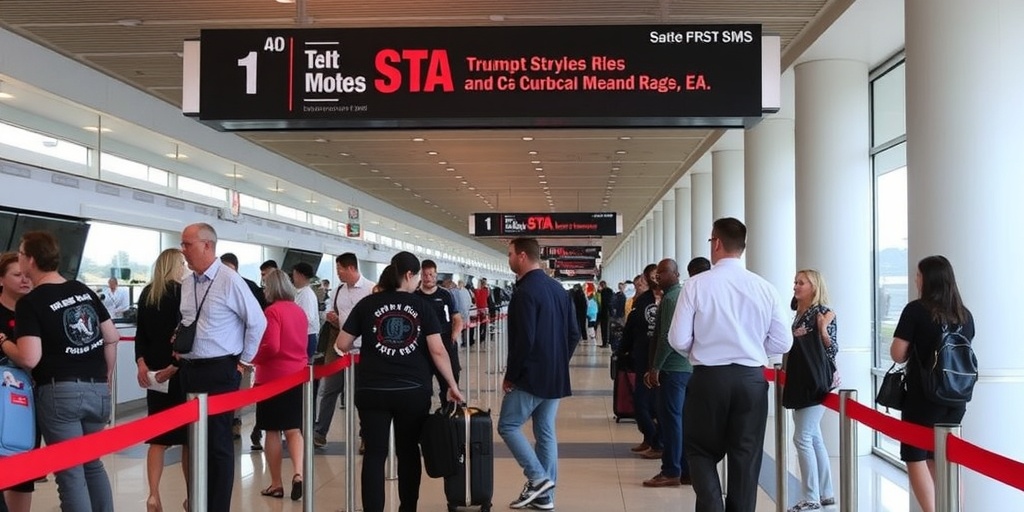Now Reading: D.C. Families Urge GOP Lawmakers Amid Job Losses and Budget Cuts
-
01
D.C. Families Urge GOP Lawmakers Amid Job Losses and Budget Cuts
D.C. Families Urge GOP Lawmakers Amid Job Losses and Budget Cuts

Protest Erupts in D.C. Over Severe Budget Cuts and Federal Layoffs
On Thursday morning, residents of Washington, D.C. gathered for a rally on Capitol Hill, expressing their profound frustration over looming budget cuts and widespread layoffs affecting thousands of federal employees in the city. These dire circumstances stem from a Republican spending bill aimed at funding the federal government through September 30, which could impose significant financial hardships on the nation’s capital.
Paul Strauss, one of D.C.’s nonvoting "shadow" senators, articulated the sentiment of many at the protest, stating, “This’ll just be an absolute economic disaster.” The rally, attended by hundreds of determined citizens, took place in the Senate Office Building as residents voiced their concerns about the substantial impact the spending bill would have on their community.
The proposed spending legislation threatens to revoke the district’s ability to utilize over $1 billion in revenue that it has already raised through taxes, fees, and other sources. This includes more than $300 million earmarked for the city’s education system, a point that district officials emphasized when expressing their objections to the bill.
Among the protesters was 11-year-old Mateo Roberts, who asserted, “My school would probably go out of business.” He, along with many other students from D.C.’s public schools, took advantage of a day off for parent-teacher conferences to join their parents at the rally. Armed with crayons and markers, these children crafted signs aimed at influencing senators—representatives who notably do not serve their district. One sign poignantly stated, “You cut my dad’s job and now you want to cut my school,” accompanied by several sad faces drawn by the young protesters.
A clear theme emerged from the testimonies of parents gathered at the rally. Many had already faced job losses due to the policies of the Trump administration, which led to substantial reductions in the federal workforce, leaving thousands of D.C. residents without jobs. The current spending bill, local officials warned, could force further layoffs within district schools, the Police Department, and other essential city agencies, exacerbating the challenges many families are already facing.
Mingo Roberts, Mateo’s father, shared his personal struggle, having lost his job after the U.S. Agency for International Development, where he worked, was targeted in federal budget cuts aimed at reducing the size of the federal government. “It feels kind of like the city is under siege,” Roberts lamented, highlighting the collective anxiety gripping many residents who have spent decades building their lives in D.C.
According to federal law, Congress must approve the district’s budget, a step that is traditionally routine. However, in the current spending bill, House Republicans have treated the district akin to a federal agency, requiring it to adhere to 2024 spending levels, which are 7 percent less than its operating budget for the current year. This maneuver does not yield savings for the federal government but rather restricts D.C. from spending its own tax revenue, including funds gathered from fees and fines like parking tickets.
As the rally unfolded, Senate Democrats expressed their opposition to the House’s proposed measure. They introduced a new spending bill that aims to avoid any cuts to the district’s budget, reflecting their commitment to protect the interests of D.C. residents.
At around 11 a.m., a small group of protesters made their way into the offices of Senator Steve Daines, a Republican from Montana, seeking to make their voices heard despite their lack of representation in the Senate. When questioned by a staffer about any Montana residents among them, Miriam Goldstein, a mother of twin 9-year-olds, proudly declared, “We are residents of the District of Columbia. We have no senators, so we are here to talk with you anyway.”
Her son, Solomon Wolff, held aloft a sign that read, “I like to play baseball,” illustrating how the proposed cuts could affect youth sports programs in the district. He expressed concern that the cuts could lead to a reduction in safety services, stating, “There will be less firefighters and police when fires start.”
His sister, Diana, articulated the injustice from a young perspective: “It’s from us. They don’t have a right to take it away.”
As the rally continued, it became increasingly clear that the ramifications of the spending bill could reach far beyond budget cuts—it represents a broader struggle for representation and equity for the residents of the District of Columbia, who are left to contend with decisions made by lawmakers who do not directly answer to them. The voices of D.C. residents resonated within the halls of power, reminding lawmakers that their actions directly impact the lives of those living under their policies.
The future remains uncertain for many D.C. residents, as the Senate races against the clock to finalize a spending bill that addresses both the immediate fiscal challenges facing the city and the broader implications of federal budget cuts. As the deadline approaches, the rally serves as a potent reminder of the struggles faced by residents in a city where local governance is often overshadowed by national political dynamics.
Stay Informed With the Latest & Most Important News
Previous Post
Next Post
-
 01New technology breakthrough has everyone talking right now
01New technology breakthrough has everyone talking right now -
 02Unbelievable life hack everyone needs to try today
02Unbelievable life hack everyone needs to try today -
 03Fascinating discovery found buried deep beneath the ocean
03Fascinating discovery found buried deep beneath the ocean -
 04Man invents genius device that solves everyday problems
04Man invents genius device that solves everyday problems -
 05Shocking discovery that changes what we know forever
05Shocking discovery that changes what we know forever -
 06Internet goes wild over celebrity’s unexpected fashion choice
06Internet goes wild over celebrity’s unexpected fashion choice -
 07Rare animal sighting stuns scientists and wildlife lovers
07Rare animal sighting stuns scientists and wildlife lovers





















